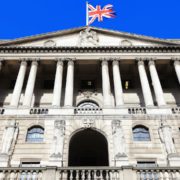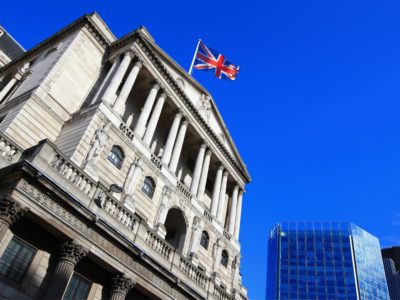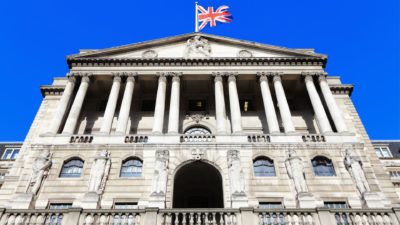With the Government confirming that the UK is to hold European Parliament elections this year, it is becoming increasingly clear that the UK’s withdrawal from the European Union is being extended far beyond what they had originally intended.
Prime Minister Theresa May repeatedly claimed the UK would leave on 29th March 2019, before the Government found itself unable to gather the requisite number of MPs needed to pass Mrs May’s proposed withdrawal deal.
As Brexit now gets delayed until the end of 2019, a new political force is emerging – the new Brexit Party, led by none other than leading Eurosceptic Nigel Farage. But what is this new party, and what does it mean for the UK housing market?
Brexit has split the major parties
The Brexit Party isn’t the only new party to form this year – almost a dozen MPs, from both Labour and the Conservative Party withdrew from their respective parties to form a centrist grouping, Change UK – The Independent Group.
Brexit was among some of the reasons cited by these MPs for leaving their parties, confirming the notion that Brexit has divided the main parties to the point where MPs felt the need to break away entirely.
This atmosphere of division has created a clear vacuum that both Change UK and the Brexit Party seem poised to take advantage of, as Brexit is delayed and the possible number of outcomes starts to multiply.
The Brexit Party – a history
Nigel Farage is a familiar face among leading Eurosceptics. Having spent several years working as a city trader in London during the 1980s, Mr Farage became an early Eurosceptic when he became a founding member of the UK Independence Party, when it was created in 1993.
Mr Farage served two terms as UKIP’s leader until 2016, when the UK voted to leave the EU. Since then, he has been seen to distance himself from UKIP as the party has appeared to drift towards the far-right, embracing controversial figures such as Tommy Robinson and YouTube personality Carl Benjamin.
The Brexit Party emerged in early 2019 as the brainchild of Catherine Blaiklock, a former UKIP spokesperson, and Mr Farage. Ms Blaiklock was initially leader of the party until she was forced to resign, owing to allegations of posting Islamophobic messages on social media. She was then succeeded swiftly by Mr Farage.
What does it stand for?
The Brexit Party believes in Brexit. One of its clear ambitions is to fully embrace the idea of leaving the EU without a withdrawal agreement (a so-called No Deal Brexit). Aside from this however, it has proved difficult to work out exactly what the party’s underlying ideological judgements are.
Property Notify directly sought clarification over the Brexit Party’s policies towards housing, including what it thought about the proposed scrappage of Section 21, as well as their approach towards first-time buyers.
Unfortunately, the party proved unable to provide policy stances on such things, but assured Property Notify that: “We will publish a full manifesto in due course, but at the moment, the Brexit Party is focusing on the European Elections, where we have a clear, single aim – achieving Brexit in sprit and practice.”
We encourage anyone connected with the Brexit Party to get in touch to clarify its stance.
Clues on possible stance
It would be easy to assume that the Brexit Party is just another single-issue political group, with little or no ambition for power, beyond ensuring Brexit takes place.
However, Mr Farage has offered some possible clues as to the party’s possible policy stance. In an interview with BBC Radio 4’s Today programme, Mr Farage said: “In terms of policy, there’s no difference, but in terms of personnel there is a vast difference”, when asked about how the Brexit Party differed to UKIP.
Mr Farage has since stated that he would not raise domestic political issues on the Brexit Party’s agenda for the duration of the European Parliamentary elections campaign.
Despite Farage’s intention to distance the Brexit Party from UKIP, it is useful to delve into what UKIP actually presents as its housing policy agenda, as the two parties have significant connections to one another, which might suggest some similarities between the two parties on some level.
For reference, UKIP’s interim manifesto, published in September 2018, details the party’s intention to scrap Stamp Duty tax. UKIP would also intend to build over 1 million new homes on existing brownfield sites.
UKIP would also plan to introduce a 5-year “residency qualification” for non-British investors, who intend to purchase property in the UK. This is a possible move to reduce foreign investment in the UK property markets, something which UKIP claimed has driven property prices upwards in the past.
The Brexit Party has not officially announced its policy regarding foreign investors, but during his time as leader, Nigel Farage took UKIP into the 2015 general election, on a manifesto pledging to ensure more “Local homes for local people”, proposing that local authorities prioritise housing for people with “strong local connections”.
UKIP’s 2015 manifesto, which Mr Farage ran on as party leader and as a prospective candidate for South Thanet, also stated that “we do not believe it is either sensible or fair to give foreign nationals the opportunity to obtain social housing stock, buy their home at a discount and then sell it for an untaxed profit before moving back aboard.”
The document also suggested local authorities, social landlords and housing associations would be required to “register the nationality of their tenants, in order to ensure this policy works in practice.”
So what kind of party is the Brexit Party?
It is quite possible the Brexit Party’s manifesto, if it ever emerges, will be radically different to UKIP’s for 2015 and 2017 – for the time being though, landlords and property investors will have to make do with accepting that the Brexit Party has only one goal officially – achieve Brexit.
If the Brexit Party is indeed indistinguishable from UKIP in terms of policy, as Mr Farage was originally quoted as saying, the party may well take a more interventionist approach to housing policy, if it plans to support more housebuilding and introduce policies to dampen foreign investment in the UK housing market.
However, the abolition of Stamp Duty, a move UKIP claimed would save taxpayers as much as “£16.2 billion per annum” in their interim manifesto, would suggest moving away from increasing the tax burden on landlords and property investors, adopting a more free-market approach.
The biggest takeaway from the Brexit Party’s recent experiences, in the run-up to the European Parliamentary elections for 2019, is the fact that it prioritises Brexit over domestic policy concerns, including housing policy.
Despite that, Brexit itself could have far-reaching implications on housing. It might make more sense to accept that the Brexit Party’s views on housing aren’t the thing to be asking about – the end result of their desired goal, Brexit, is the true thing to be concerning yourself with.
Parties come and go, but Brexit is a once-in-a-generational shift in how the UK interacts with Europe. As a former British Prime Minister once said, a week is a long time in politics. The elections this week could prove pivotal in the debate around Brexit.

























Comments